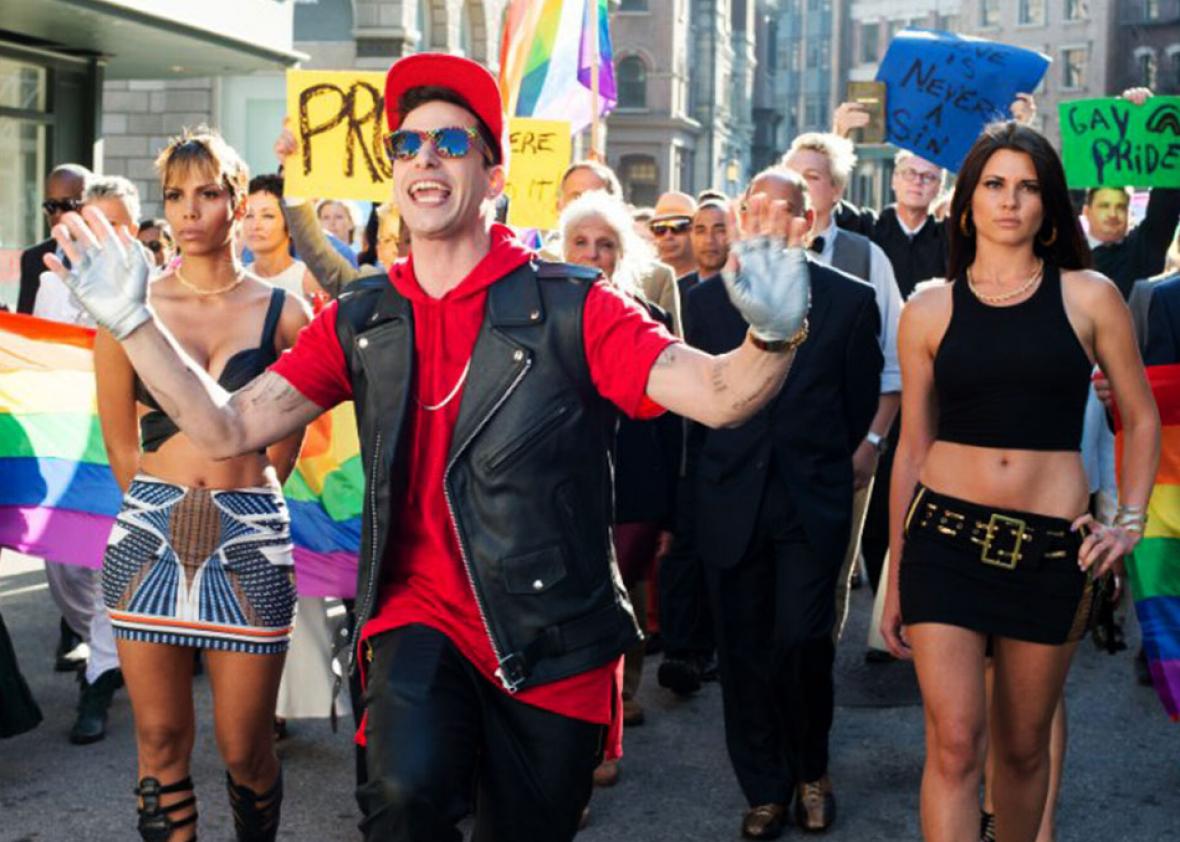To say that the Lonely Island’s new movie Popstar is the best film parody of popular music since This Is Spinal Tap is to do it a disservice. That’s because Popstar is just about the only film parody of pop music since Spinal Tap. This is, as the poet said, crazy, but it’s only while watching Popstar that you realize exactly how crazy this is. In the three decades since Christopher Guest, Michael McKean, and Harry Shearer donned the blown-out wigs of Spinal Tap, pop has undergone a revolution only matched by the 30-year revolution that culminated in Spinal Tap. (The previous revolution was led by rock, while the new one is led by hip-hop, electronic music, and Swedish dudes named Karl.) This, it turns out, is the source of Popstar’s greatest weakness and its greatest strength. While the movie initially appears to be a spoof of Justin Bieber’s blockbuster concert documentary Justin Bieber: Never Say Never (Popstar’s own subtitle is Never Stop Never Stopping), in fact it’s a spoof of a whole new era of pop decadence. When it loses focus, it’s because there are far too many rich targets to lampoon.
Like the only other pop parodies of recent vintage (1993’s dual satires CB4 and Fear of a Black Hat, which set their sights on gangsta rap, and 2007’s underappreciated Walk Hard, whose real target is not music but music biopics), Popstar’s structure is simple and familiar. In Act 1, we see our hero’s rise to fame: In this case, Conner4Real (Andy Samberg) achieves superstardom with his bandmates in the Style Boyz (fellow Lonely Island members Jorma Taccone and Akiva Schaffer).* In Act 2, the protagonist flies too close to the sun and plummets through a cloud of drugs to rock bottom: Conner goes solo, is terrible, and ends up passed out on his parents’ lawn. I can’t spoil Act 3, because you already know it.
But it doesn’t matter that the plot is predictable, because it’s merely a means for getting from one precise (and hilarious) musical parody to the next. A prime example is the song that precipitates Conner’s fall, a sendup of all those circa-2012 gay rights anthems from straight artists. “I’m not gay, but if I was, I’d want equal rights,” Conner raps, doing a pitch-perfect Macklemore, and feeling the need to interrupt himself with increasingly absurd “no homo”–isms like “Not gay!” and “Sports!” (“I was born this way,” the single continues, finding another pop savior to satirize, before adding, “and you were born your way.”) A later song takes the already-jokey bedroom conceits popularized by R. Kelly and manages to outdo even him for elaborate (and sometimes alarmingly violent) sexual metaphors. In this case, Conner extends and unravels an analogy about a girl who wants to be “f—ed harder then the U.S. government f—ed bin Laden.”
If you’re wondering whether Conner is a rapper (as on “Equal Rights”), an R&B singer (as on the “Bin Laden Song”), or a more down-the-middle pop star (as in the title), well, narrative consistency is not Popstar’s strong suit. Conner is Justin Bieber, and Macklemore, and Kanye West, and Justin Timberlake, and whoever else the creators want to make fun of, mashed up into one character and turned to 11. When he makes a deal to “surprise-release” his new album into every American’s refrigerator, microwave, and toaster, he’s U2, “gifting” you with his music without asking you first whether you wanted it. On the “Miracles” spoof “Incredible Thoughts,” he’s the Insane Clown Posse. Conner contains multitudes.
But narrative coherence barely matters when the movie’s view of the pop universe is so comprehensive. In the hands of creators with less intimate knowledge of the music industry, Popstar would have been a Bieber-inspired spin on the emperor’s new clothes, and indeed it seems like no coincidence that at one point Conner is literally disrobed in front of all his fans. But the message of Popstar isn’t that pop stars are self-absorbed, out of touch, and talentless; it’s that pop stars are self-absorbed, out of touch, and actually very talented. (Popstar reprises one of the more memorable images from Never Say Never when it shows Conner performing a drum solo as a baby.) When things go off the rails, it’s when pop stars lack equally talented collaborators who will help them check themselves lest they wreck themselves. (It’s not that the emperor has no clothes; it’s that sometimes he needs someone to tell him that gold-encrusted onesie is a bad idea.)
*Correction, June 3, 2016: This article originally misspelled the name of Conner4Real. (Return.)
